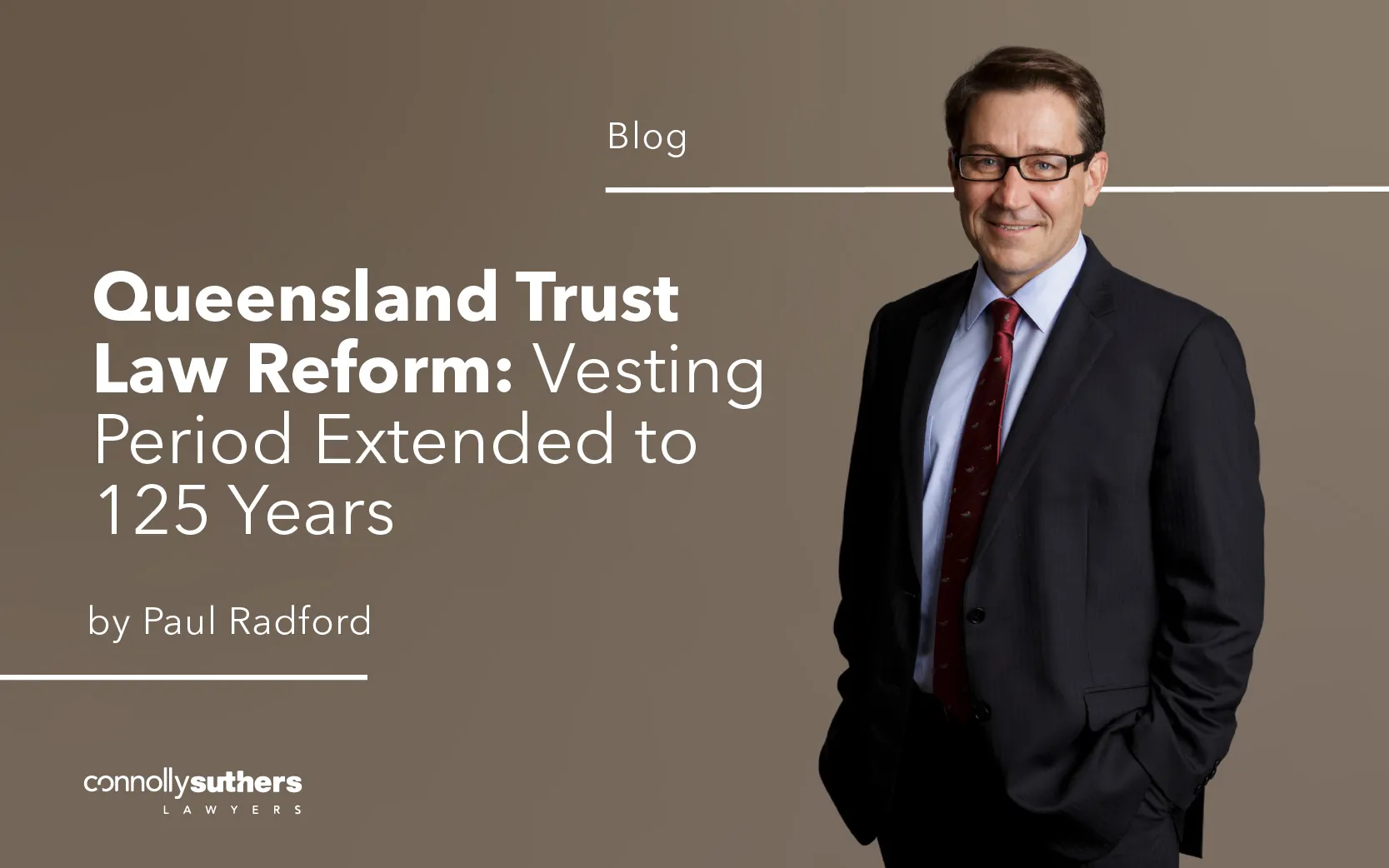
Effective 1 August 2025, Queensland has introduced a major reform to trust law, extending the maximum vesting period for trusts from 80 years to 125 years. This change, under the Property Law Act 2023 (Qld), offers new opportunities for long-term estate planning and wealth management.
What’s Changed?
The reform:
- Abolishes the common law rule against perpetuities
- Introduces a fixed statutory vesting period of 125 years
- Applies to new and existing trusts governed by Queensland law
Who Does This Affect?
Trusts eligible for the extended vesting period include:
- Discretionary trusts
- Unit trusts
- Fixed trusts
- Bare trusts
- Testamentary trusts
To qualify, the trust must have a substantial connection to Queensland, such as:
- Queensland-based trustees
- Queensland-held assets
- Queensland-resident beneficiaries
Why It Matters
Extending the vesting period offers:
- Deferral of CGT and other tax consequences
- Greater flexibility in succession planning
- Enhanced asset protection
- Longer-term income distribution strategies
What Should Trustees Do?
- Review your trust deed for amendment powers
- Amend the vesting date if permitted
- If not, consider:
- Seeking beneficiary consent
- Applying to the Supreme Court of Queensland
Legal Insight from Connolly Suthers
This reform presents a valuable opportunity for trustees and advisers to future-proof their trust structures. Our experienced team can:
- Review and amend trust deeds
- Advise on legal implications
- Assist with court applications if needed